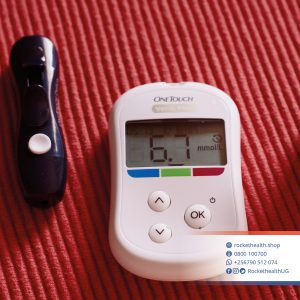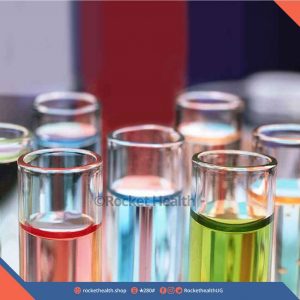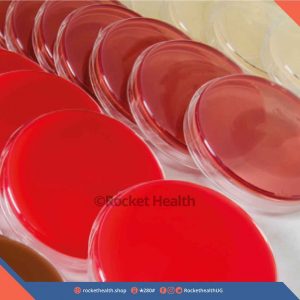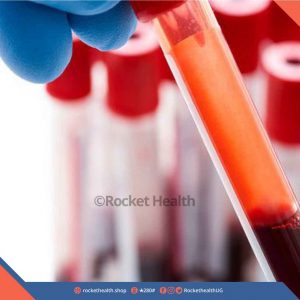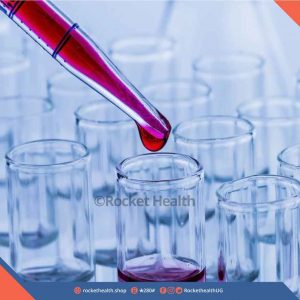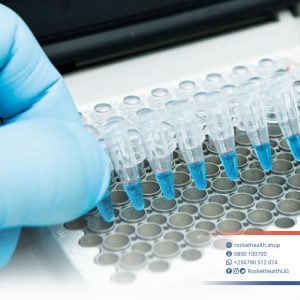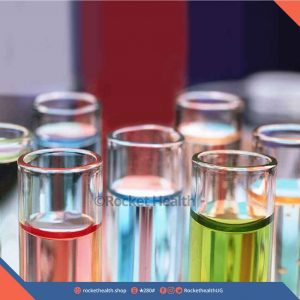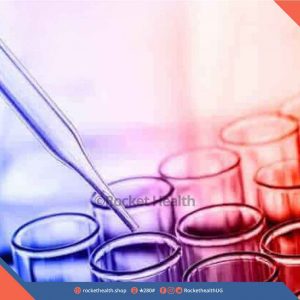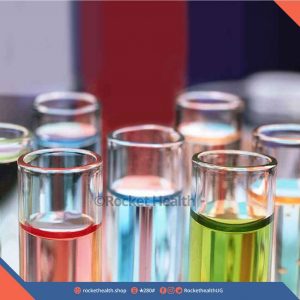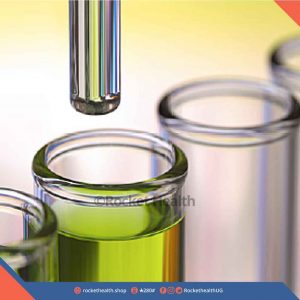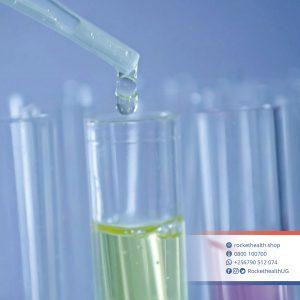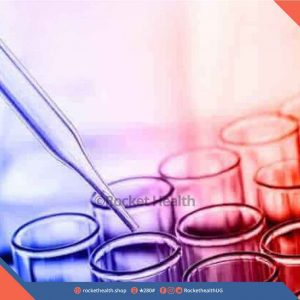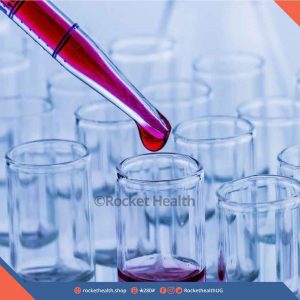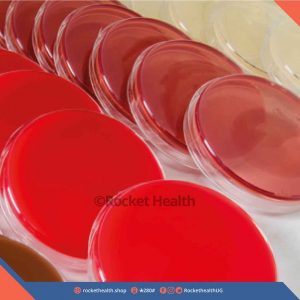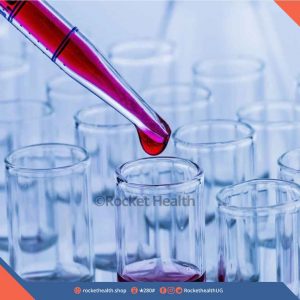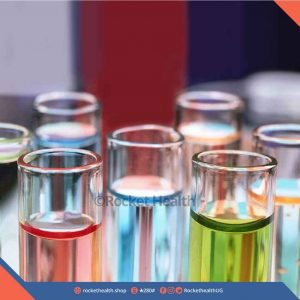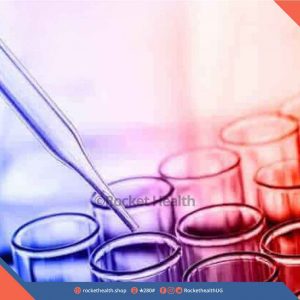No products in the cart.
FASTING BLOOD SUGAR
A test done to detect or monitor diabetes condition by measuring the amount of sugar (glucose) in the blood after having no meal for at least 8 hours.
Blood.
Inform your doctor if you are on any medications, have any allergies or underlying medical conditions before your Fasting Blood Sugar. Fasting blood sugar test is done after you fasted (without eating anything) for a whole night or for 8 to 12 hours. Usually, the blood is drawn in the morning after overnight fasting. Drinking water is not prohibited.
A fasting blood sugar (FBS) test is used to measure the amount of glucose (sugar) present in your blood after fasting for a whole night or for 8 hours. Glucose is the primary energy source for the body’s cells and the only energy source for the brain and nervous system. A steady supply must be available for use, and a relatively constant level of glucose must be maintained in the blood.
UGX 8,000FASTING BLOOD SUGAR
UGX 8,000Urine culture and sensitivity
A culture is a test to find the exact germs (such as bacteria or a fungus) that is causing an infection. A sensitivity test checks to see what kind of medicine, such as an antibiotic, will work best to treat the illness or infection.
Urine.
Do not take antibiotics for atleast 3 days before the test.
A test that demonstrates the presence of disease causing organisms in the body. Culture and sensitivity demonstrates the presence of disease causing organisms in the body and to identify which medicines can best eliminate them. In this test, disease causing organisms (most commonly bacteria and fungi) are grown in the laboratory (cultured) and medicines tried on them to determine which ones best work on them (sensitivity testing).
UGX 60,000Urine culture and sensitivity
UGX 60,000H.PYLORI ANTIBODY TEST
This blood test checks for antibodies to H.pylori a bacteria that causes peptic ulcers. A positive results means you either are currently infected or have been infected in the past.
Blood.
No specific patient preparation protocol required. Inform your doctor if you are on any medications or have any underlying medical conditions or allergies before undergoing this test.
To diagnose an infection with Helicobacter pylori (H. pylori). Helicobacter Pylori H. Pylori is a spiral-shaped bacterium and attack the lining of the stomach. Due to its spiral shape, it penetrates into the stomach and gets protected by the mucus. Hence, immune cells are not able to reach them. This bacteria cause serious stomach problems like peptic ulcer, gastritis and most of the stomach ulcers. Antigens are the foreign substances that induce the immune responses to produce antibodies in the human body.
UGX 20,000H.PYLORI ANTIBODY TEST
UGX 20,000Thyroid- Stimulating Hormone (TSH)
This is a blood test that measures the amount of Thyroid Stimulating Hormone in the blood.
Blood.
If you take thyroid hormone as treatment for thyroid disease, it is recommended that your blood sample be drawn before you take your dose for that day. Acute illness may also affect thyroid testing results so it is generally recommended that thyroid testing be avoided in hospitalized patients. Inform the doctor if you are on any medications including multivitamins and supplements, have any allergies or underlying medical conditions before this test.
To help diagnose thyroid disorders and to monitor treatment of hypothyroidism and hyperthyroidism;sometimes a TSH test is used to screen newborns for congenital hypothyroidism.
UGX 45,000Thyroid- Stimulating Hormone (TSH)
UGX 45,000HIV Elisa
This is one of the more sensitive tests for presence of HIV infection by detecting HIV antigens and antibodies in blood.
Blood.
No specific patient preparation protocol required. Inform the doctor if you are on any medications, have any allergies or underlying medical conditions before your this test
The enzyme-linked immunosorbent assay (ELISA), also known as an enzyme immunoassay (EIA), detects HIV antibodies and antigens in the blood. Antibodies are proteins produced by the immune system, which helps your body fight disease. The immune system produces the antibodies in response to the presence of foreign substances, such as viruses. By contrast, antigens are any foreign substance in the body that causes the immune system to respond.
UGX 65,000HIV Elisa
UGX 65,000D-Dimer
D-dimer tests are used to help rule out the presence of an inappropriate blood clot (thrombus).
Blood.
No specific patient preparation protocol required. Inform the doctor if you are on any medications, have any allergies or underlying medical conditions before this test
D-dimer is one of the protein fragments produced when a blood clot gets dissolved in the body. It is normally undetectable or detectable at a very low level unless the body is forming and breaking down blood clots, then its level in the blood can significantly rise. While clots most commonly form in the veins of the legs, they may also form in other areas as well. Measurements of D-dimer can be used to help detect clots in any of these sites. For example, clots in coronary arteries are the cause of myocardial infarction (heart attacks).
UGX 75,000D-Dimer
UGX 75,000C-REACTIVE PROTEIN (CRP)
This test (C-reactive protein) helps to detect inflammation from acute infections, burns, trauma and many other conditions that would cause inflammation. It is also used to monitor severity of diseases in chronic conditions.
Blood.
No specific patient preparation protocol required. Inform your doctor if you are on any medications or have any underlying medical conditions or allergies before undergoing this test.
A CRP test measures the amount of CRP in the blood to detect inflammation due to acute conditions or to monitor the severity of disease in chronic conditions. C-reactive protein (CRP) is a protein made by the liver. CRP levels in the blood increase when there is a condition causing inflammation somewhere in the body. CRP is a non-specific indicator of inflammation and one of the most sensitive acute phase reactants. That means that it is released into the blood within a few hours after an injury, the start of an infection, or other cause of inflammation.
UGX 30,000C-REACTIVE PROTEIN (CRP)
UGX 30,000Estradiol
An estradiol test is a simple blood test to measure the amount of estradiol hormone during assessment of fertility or treatment.
Blood.
None, but early morning samples are preferred and the timing of a woman’s sample will be correlated with her menstrual cycle or, if pregnant, with the gestational age of the baby.
Estradiol (E2) is primarily produced in the ovaries under stimulation of FSH and LH in pre-menopausal women and in the testicles in men. E2 is converted from E1 in post-menopausal women. It is the most potent estrogen and the one that is present in the highest concentration in non-pregnant, pre-menopausal women. E2 levels vary depending on a woman’s age and reproductive status. They are a good marker of ovarian function. Increased or decreased levels of estrogens are seen in many metabolic conditions i.e. Hyperthyroidism, Cirrhosis, Turner syndrome, hypopituitarism, female hypogonadism, Polycystic ovary syndrome.
UGX 50,000Estradiol
UGX 50,000BRUCELLA AGGLUTINATION TEST
This a screening test for the diagnosis of brucellosis in the human body.
Blood.
No specific patient preparation protocol required. Inform your doctor if you are on any medications or have any underlying medical conditions or allergies before undergoing this test.
Brucellolis is a zoonotic disease (disease that attacks both humans and animals), caused by different types of the brucella bacteria. When humans come in contact with an infected animal or animal products that are contaminated with Brucella, brucellosis may result. Most human infections are occupational. Infection is generally via skin wounds, but the organisms can also be inhaled. Another common route of Brucella infection is eating or drinking infected dairy products and (meat)that have not been pasteurized.
UGX 15,000BRUCELLA AGGLUTINATION TEST
UGX 15,000Lab Results Tele-Consultation
Lab Results Tele-Consultation is meant for customers who order lab tests services and want our rocket health doctors to call and explain for them the results.
UGX 10,000Lab Results Tele-Consultation
UGX 10,000Semen Analysis
A complete semen analysis measures the quantity and quality of the fluid released during ejaculation often used in the evaluation of male infertility.
Semen.
For infertility testing, refrain from having sex or masturbation for 2-5 days before sample collection; carefully follow instructions provided.
Semen is a viscous, whitish liquid that contains sperm and the products from several glands. In an evaluation of a man’s fertility, each aspect of the semen analysis is considered i.e. viscocity, volume, motility, morphology, sperm concentration, semen PH, fructose, white blood cells, clamping as well as the findings as a whole. Semen from a man can vary widely from sample to sample. Abnormal results on one sample may not indicate a cause of infertility, and multiple samples may need to be tested before a diagnosis is made
UGX 120,000Semen Analysis
UGX 120,000Creatinine
A carcinoembryonic antigen (CEA) test is a blood test used to help diagnose and manage certain types of cancers during treatment.
Blood.
You may be instructed to fast overnight or refrain from eating cooked meat; some studies have shown that eating cooked meat prior to testing can temporarily increase the level of creatinine. If a 24-hour urine sample is being collected, it is important to save all the urine produced during that time period.
Both creatine and creatinine are produced by the body at a relatively constant rate. Since almost all creatinine is filtered from the blood by the kidneys and released into the urine, blood levels are usually a good indicator of how well the kidneys are working. The amount of creatinine you produce depends on your body size and your muscle mass. For this reason, creatinine levels are usually slightly higher in men than in women and children. Results from a blood creatinine test may be used in combination with results from other tests, such as a 24-hour urine creatinine test, to calculate values that are used to evaluate kidney function.
UGX 20,000Creatinine
UGX 20,000HB ELECTROPHORESIS
This is a blood test that is used to check the different types of hemoglobin and can be used to detect hemoglobin disorders such as sickle-cell disease.
Blood.
No specific patient preparation protocol required. Inform your doctor if you are on any medications or have any underlying medical conditions or allergies before undergoing this test.
Hb electrophoresis is done to detect hemoglobinopathies. A hemoglobinopathy is an inherited blood disorder in which an individual has an abnormal form of hemoglobin (variant) or decreased production of hemoglobin (thalassemia).
UGX 75,000HB ELECTROPHORESIS
UGX 75,000High vaginal swab culture and sensitivity
A culture is a test to find the exact germs (such as bacteria or a fungus) that is causing an infection. A sensitivity test checks to see what kind of medicine, such as an antibiotic, will work best to treat the illness or infection.
Vaginal swab.
Do not take antibiotics for atleast 3 days before the test.
A test that demonstrates the presence of disease causing organisms in the body. Culture and sensitivity demonstrates the presence of disease causing organisms in the body and to identify which medicines can best eliminate them. In this test, disease causing organisms (most commonly bacteria and fungi) are grown in the laboratory (cultured) and medicines tried on them to determine which ones best work on them (sensitivity testing).
UGX 60,000High vaginal swab culture and sensitivity
UGX 60,000Free T4
This is a test used to evaluate the proper functioning of the thyroid gland and monitor thyroid treatment.
Blood.
If you take thyroid hormone as treatment for thyroid disease, it is recommended that your blood sample be drawn before you take your dose for that day. Acute illness may also affect thyroid testing results so it is generally recommended that thyroid testing be avoided in hospitalized patients. Inform the doctor if you are on any medications, have any allergies or underlying medical conditions before this test.
Most of the hormone produced by the thyroid is T4. This hormone is relatively inactive, but it is converted into the much more active T3 in the liver and other tissues. If the thyroid gland does not produce sufficient T4 and T3 (underactive thyroid), due to thyroid dysfunction or to insufficient TSH, then the affected person experiences symptoms of hypothyroidism such as weight gain, dry skin, cold intolerance, irregular menstruation, and fatigue. If the thyroid gland produces too much T4 and T3, the affected person may experience symptoms associated with overactive thyroid (hyperthyroidism), such as rapid heart rate, anxiety, weight loss, difficulty sleeping, tremors in the hands, and puffiness around dry, irritated eyes and in some cases, bulging eyes.
UGX 45,000Free T4
UGX 45,000URIC ACID
This blood test is used to check for gout and also monitor people undergoing chemotherapy or radiation treatment for cancer.
Blood.
No specific patient preparation protocol required. Inform your doctor if you are on any medications or have any underlying medical conditions or allergies before undergoing this test.
Uric acid is produced by the breakdown of purines. Purines are nitrogen-containing compounds found in the cells of the body, including our DNA. If too much uric acid is produced or not enough is removed, it can accumulate in the body, causing increased levels in the blood (hyperuricemia). The presence of excess uric acid can cause gout, a condition characterized by inflammation of the joints due to the formation of uric acid crystals in the joint (synovial) fluid. Excess uric acid can also be deposited in tissues such as the kidney, leading to kidney stones or kidney failure.
UGX 30,000URIC ACID
UGX 30,000Prothrombin Time (INR)
The prothrombin time (PT) is a test that helps evaluate your body’s ability to appropriately form blood clots.
Blood.
None needed, however if you are receiving anticoagulant therapy, the blood sample should be collected before taking your daily dose.
A PT measures the number of seconds it takes for a clot to form in your sample of blood after substances (reagents) are added. The PT is often performed along with a partial thromboplastin time (PTT) and together they assess the amount and function of proteins called coagulation factors that are an important part of proper blood clot formation. For people taking warfarin, most laboratories report PT results that have been adjusted to the INR. A prolonged PT means that the blood is taking too long to form a clot, this may be caused by conditions such as liver disease, vitamin K deficiency, or a coagulation factor deficiency (e.g., factor VII deficiency).
UGX 35,000Prothrombin Time (INR)
UGX 35,000

